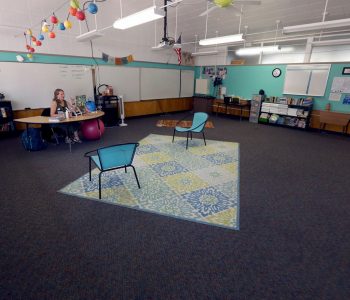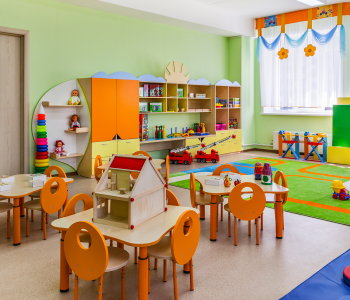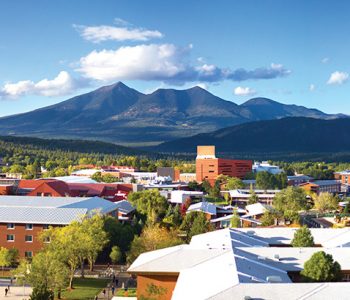 Education News
Education News
Arizona FY20 Budget Review
How the FY20 budget stacks up against the Roadmap for P-20 Education Funding
From Expect More Arizona, May 22, 2019.
[Emphasis from original]
A budget agreement was reached over the holiday weekend and the Legislature has sent a budget to the Governor for his signature. All bills were passed along party lines – Republicans in favor and Democrats opposing, with only one Senate Republican voting against a handful of the budget bills.
The fiscal year 2020 budget (FY20: July 1, 2019 – June 30, 2020) includes important investments in all of education – early childhood education, K-12 and postsecondary.
The budget includes an increase to teacher pay as part of the 20 percent by 2020 commitment, and accelerates the restoration of district and charter additional assistance this year. Additional new investments in K-12 will support the hiring of school counselors, social workers and school resource officers; increased career and technical education opportunities; K-12 school construction and more. In addition, the budget includes one-time and ongoing investments for Arizona’s universities and community colleges.
The budget does include a compromise on tax conformity – the changes the state could make to Arizona’s tax code in order to capture some of the revenues forgone by the federal government when they changed the federal tax code in 2017. As structured, potential revenues from tax conformity are being left on the table. But we also recognize that even those dollars wouldn’t adequately fund the investment priorities outlined in the Roadmap for P-20 Education Funding to reach the Arizona Education Progress Meter goals.
With investments in all levels of education – early childhood, K-12 and postsecondary – the FY20 budget moves us forward. But we have much more to do. While targeted fixes and one-time expenditures serve demonstrated needs, they won’t get us where we need to be in the long-term.Now that the legislature has adjourned, leaders should quickly pivot to the hard work of identifying a new mix of sources to thoughtfully increase state revenue to support a long-term funding solution for all of education in Arizona, while maintaining a healthy business climate.
Here are the highlights of the budget:
NOTE: Budget investments marked with an asterisk (*) impact the priorities outlined in the Roadmap for P-20 Education Funding.
EARLY CHILDHOOD EDUCATION
Child Care Subsidies* – Last year’s federal budget increased funding to the Child Care Development Block Grant. Arizona’s share was $56 million, but the Arizona Department of Economic Security (DES) could not spend those dollars because the state’s budget did not include an expenditure authority to do so. The proposed budget does include the $56 million.
K-12
Teacher Pay Raises* – Last year’s budget committed to a 20 percent pay raise over three years, which included advance appropriations for fiscal years 2020 and 2021. The budget follows through on this commitment and the FY20 budget includes a teacher pay raise of 5 percent ($165 million). The increase will again be added to the base per pupil funding and therefore protected for the future and subject to annual inflation adjustments. As was the case this past year, school district and charter governing boards will define who will receive raises, which means that teachers may receive different amounts.
District and Charter Additional Assistance* – Last year’s budget committed to the full restoration in district and charter additional assistance (DAA/CAA) over five years, beginning last year with a $100 million allocation. That $100 million stays in the base funding formula and this year’s budget includes an additional $136 million this year to accelerate DAA/CAA repayment. Full restoration will be completed with two additional payments of $68M each in FY22 and FY23. This funding restoration has the potential to free up dollars for school districts to support other priorities.
Career and Technical Education (CTE) – CTE programs enjoy broad support from educators, parents and business leaders because they help students receive real-world training and prepare them for jobs. The budget includes $10 million over FY21 and FY22 in one-time funding to strengthen CTE by providing up to a $1,000 incentive payment to schools for each high school graduate who earns an approved industry certification. For now, priority will be placed on schools that offer programming in Manufacturing, Business and Financial Services, Health Care and Construction.
School Safety Grant Program* – The budget includes $20 million in FY20 for a grant program to fund school counselors, social workers and school resource officers. This ongoing funding can be used to help address Arizona’s current ratio of students to counselors is 905:1 and the recommended ratio is 250:1.
Results-Based Funding – $30 million to expand results-based funding, which awards Arizona’s highest performing schools based on the state’s assessment (AzMERIT). In the future, the program will be based on the state’s A-F letter grade system. The program will be applied as follows:
- $400 per pupil for schools with AzMERIT test results in the top 13% that have 60 percent or greater free and reduced price lunch status or alternative schools with test results in the top 27%
- $225 per pupil for schools with AzMERIT test results in the top 13-27% that have 60 percent or greater free and reduced price lunch status
- $225 per pupil for Schools with AzMERIT test results in the top 13% that have less than 60 percent free and reduced price lunch status
Additional conversations are needed about opportunities to continue to reform the state’s letter grade system in order to reward both growth and proficiency and help address the opportunity gaps that impact student achievement gaps.
Funding for Charter School Transparency, Accountability and Oversight – The budget includes $400,000 in each of FY20 and FY21 in ongoing funding for the Arizona State Board for Charter Schools to hire a total of 10 additional staff for charter school oversight.
School Building Improvements and New School Construction* – A total of $87.8 million is available for building renewal. This includes $62.8 million in new funding for FY20 and $25 million in supplemental funding for FY19. A total of $75.9 million is available for school construction in FY20. We will provide more information about what districts may be impacted as it becomes available.
Other K-12 Highlights – $1 million for Gifted Education; $400,000 a year through FY22 is available for a High Quality Teacher Professional Development Pilot Program that can provide up to $2,000 per STEM teachers seeking additional credentials. $30 million in FY22 to reduce the K-12 rollover for small schools that have less than 1350 students.
POSTSECONDARY EDUCATION
Teacher Recruitment* – $15 million to expand the Arizona Teacher’s Academy. Scholarships, awarded after other gift aid is received, are available to full-time students in the state’s teacher preparation programs, graduate programs, and teachers seeking national board certification (NBC). Up to $5,000 per year for up to four academic years (eight semesters) for undergraduate university student; up to $3,000 per year per community college student for up to two academic years (four semesters); and up to $2,500 for a teacher seeking NBC.
Tuition Reimbursement – $1 million in ongoing funds for the Department of Military Affairs’ National Guard tuition reimbursement program.
Investments in Community Colleges – The budget calls for $15 million in one-time funds to expand the capacity of the Aviation Technology Center at Pima Community College to meet the growing workforce demands of the aerospace industry in Southern Arizona. It also includes $5.8 million in one-time funding to expand student capacity at Maricopa County Community College District’s healthcare professional training facility. There is $14.2 million in one-time funding for eight rural community colleges; $6 million over three years to Maricopa and Pima Community Colleges to include each back in STEM formula funding through FY22; $1 million in permanent funding for Diné College, a four-year college serving the Navajo Nation; and $1 million in one-time funds for a fire training center at Northland Pioneer College through the Department of Forestry.
Investments in Arizona’s Public Universities – The budget includes $43 million in one-time funding to support the universities, including $18.9 million for ASU, $9.4 million for the UofA, $8 million for the UofA Health Sciences Center ,and $6.7 million for NAU. The budget includes about $3.5 million in ongoing investments, including $160,000 for an adaptive athletic program at the UofA; $300,000 for university internships in Washington, D.C.; and $3 million to continue biomedical research funding support to TGEN.
Graduate Medical Education: The budget includes investments in graduate medical education (residency programs) in both rural/urban areas: for FY20, $1.7 million in rural, $1.5 million urban and $750,000 for north country; for FY21, $3.4 million rural and $2.7 million urban; and for FY22, $5 million rural and $4 million urban. The Budget also adds $750,000 for the Medical Loan Repayment Program.









